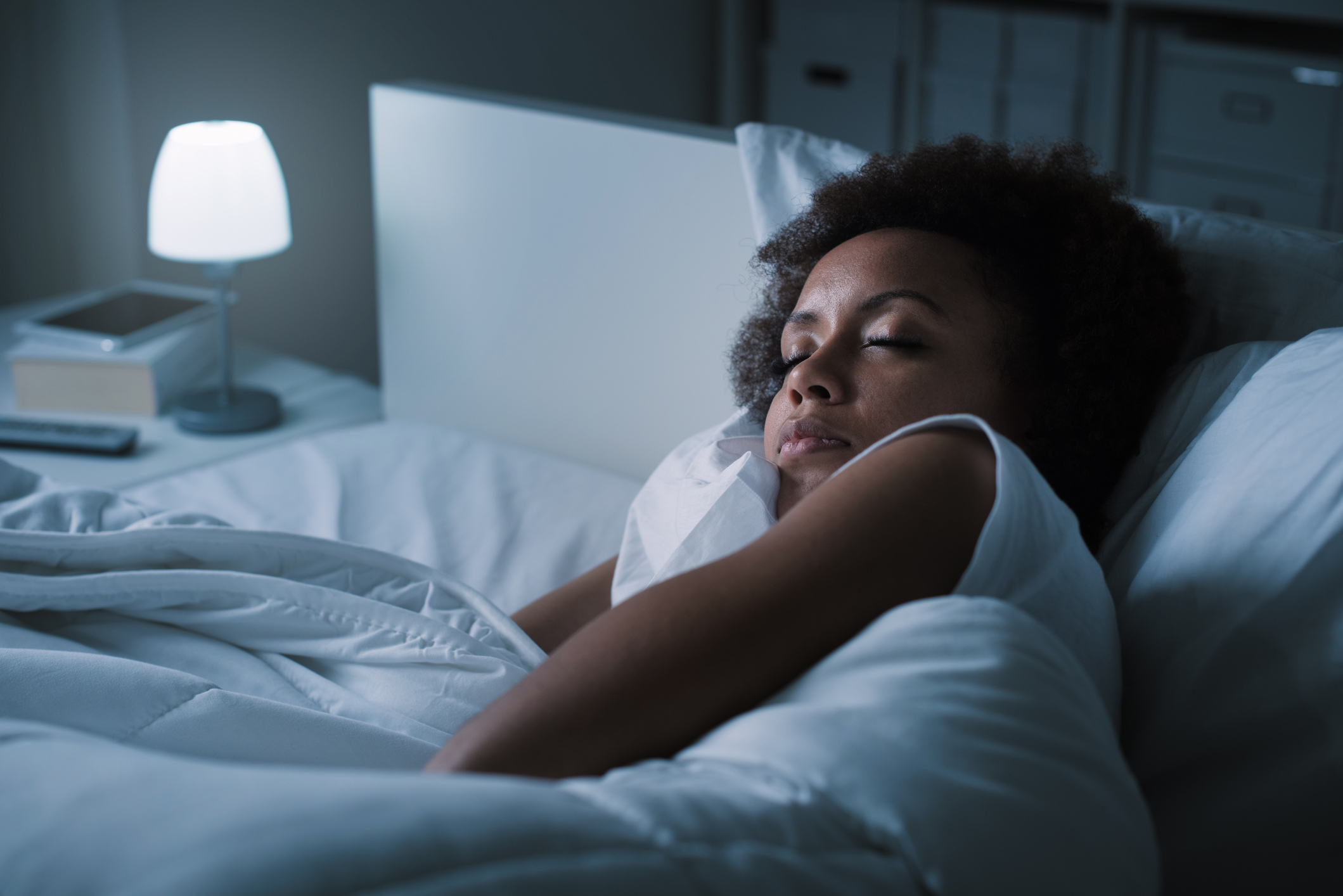Get Easy Health Digest™ in your inbox and don’t miss a thing when you subscribe today. Plus, get the free bonus report, Mother Nature’s Tips, Tricks and Remedies for Cholesterol, Blood Pressure & Blood Sugar as my way of saying welcome to the community!
The bad bedroom habit that leads to metabolic syndrome

If you like to fall asleep with the lights on, or can’t sleep without a night light on, you may want to rethink these habits.
Evidence is mounting that sleeping in anything but a pitch-black bedroom is harming your health in some serious ways.
There’s already been plenty of research showing that even a little bit of light, whether from your window or a candle, can cause depression, as well as elevate your risk of thyroid cancer.
The latest: If you’re not turning off the lights, you’re keeping on processes that normally shut down after dark.
And when they’re running overtime, they impair glucose and cardiovascular regulation — risk factors for heart disease, diabetes and metabolic syndrome.
Light at night is a metabolic nightmare
A 2018 study had already proven that even one night of light exposure when you’re sleeping can set you up for insulin resistance and eventual type 2 diabetes.
Dr. Phyllis Zee, chief of sleep medicine at the Feinberg School of Medicine, also cites an earlier study where a large population of healthy adults was exposed to light during sleep and were more likely to be overweight or obese.
The newest study, conducted by researchers from Northwestern University’s Feinberg School of Medicine, sheds light on why that happens…
“Now we are showing a mechanism that might be fundamental to explain why this happens,” Dr. Zee says. “We show it’s affecting your ability to regulate glucose.”
Essentially, when you sleep in a lighted room, you wake up more insulin-resistant than when you went to sleep. Insulin resistance is when your cells don’t respond as they should to insulin, so your body is unable to use blood glucose for energy. This causes the pancreas to overproduce — resulting in high blood sugar.
But that’s not all…
“We showed your heart rate increases when you sleep in a moderately lit room,” says Dr. Daniela Grimaldi, a co-first author and research assistant professor of neurology at Northwestern.
In moderate light, compared to dim light, the heart rate increases as well as the force with which the heart contracts and the rate of how fast the blood is conducted to your blood vessels for oxygenated blood flow.
“Even though you are asleep, your autonomic nervous system is activated. That’s bad. Usually, your heart rate together with other cardiovascular parameters are lower at night and higher during the day.”
All of these effects from light at night — insulin resistance, harm to normal cardiovascular functions and weight gain — equate to a perfect recipe for metabolic syndrome.
How to keep light from making you sick
According to Dr. Zee, “These findings are important, particularly for those living in modern societies where exposure to indoor and outdoor nighttime light is increasingly widespread.”
What does she recommend?
- Don’t turn the lights on (in the bedroom). If you need to have a light on (which older adults may want for safety), make it a dim light that is closer to the floor.
- Color is important. Amber or a red/orange light is less stimulating for the brain. Don’t use white or blue light and keep it far away from the sleeping person.
- Blackout shades or eye masks are good if you can’t control the outdoor light. Move your bed so the outdoor light isn’t shining on your face.
How can you tell if your room is too lit? Dr. Zee says if you are able to see things really well, it’s probably too light.
Dr. Michael J. Breus, clinical psychologist and board-certified sleep specialist, also recommends:
- Get plenty of light exposure during the day. Daytime light exposure improves your mood, strengthens your circadian rhythms and allows you to sleep better at night.
- Avoid unnecessary and excessive exposure to evening light. Look for ways to reduce the amount of artificial light you’re exposed to once evening falls. Close your curtains to block bright street light or use dimmer switches to lower the level of light in your home after dinner.
- Block bright and blue light on screens. Use the blue light-blocking filter on your phone and laptop (most are now equipped with this filter). Or you can attach blue light-blocking filters directly to the screens themselves, or use blue light-blocking glasses.
Editor’s note: Are you feeling unusually tired? You may think this is normal aging, but the problem could be your master hormone. When it’s not working, your risk of age-related diseases skyrockets. To reset what many call “the trigger for all disease” and live better, longer, click here to discover The Insulin Factor: How to Repair Your Body’s Master Controller and Conquer Chronic Disease!
Sources:
Close the blinds during sleep to protect your health — Science Daily
Light exposure during sleep impairs cardiometabolic function —Proceedings of the National Academy of Sciences (PNAS)
Light exposure during sleep may increase insulin resistance —Science Daily
Unraveling the link between obesity and sleep — Eureka Alert
5 Serious Medical Conditions Linked To Nighttime Light Exposure — huffpost.com














